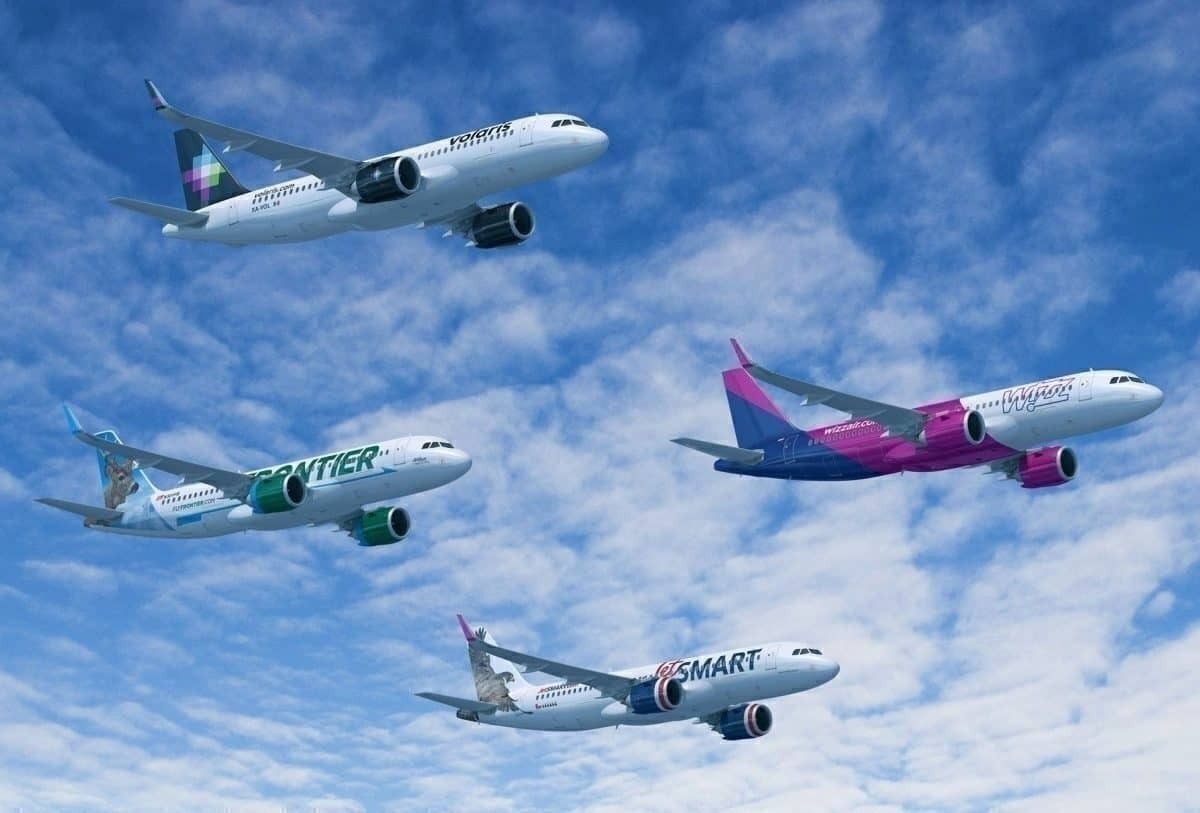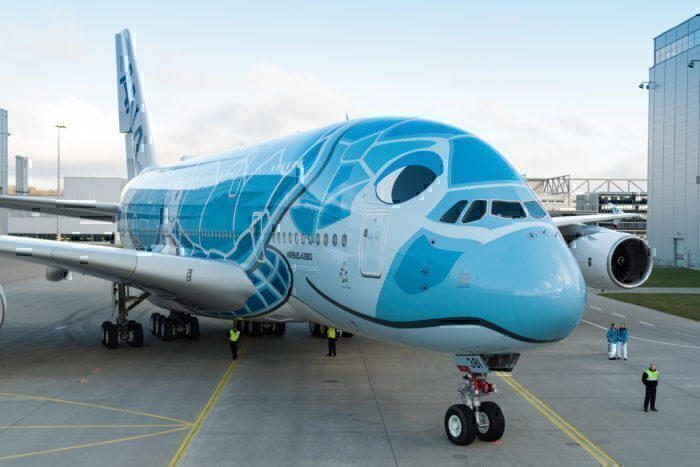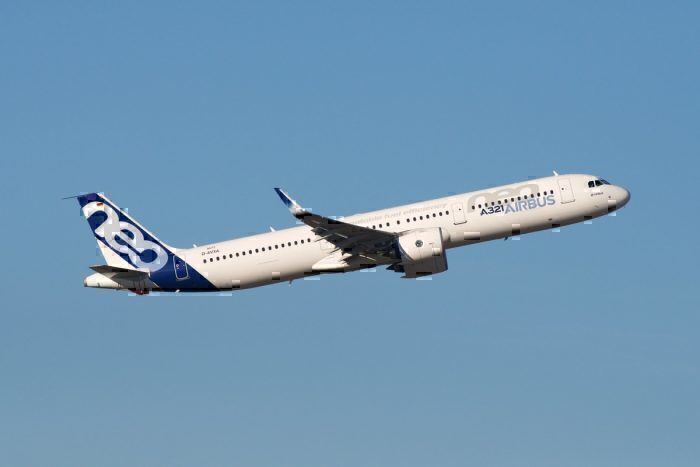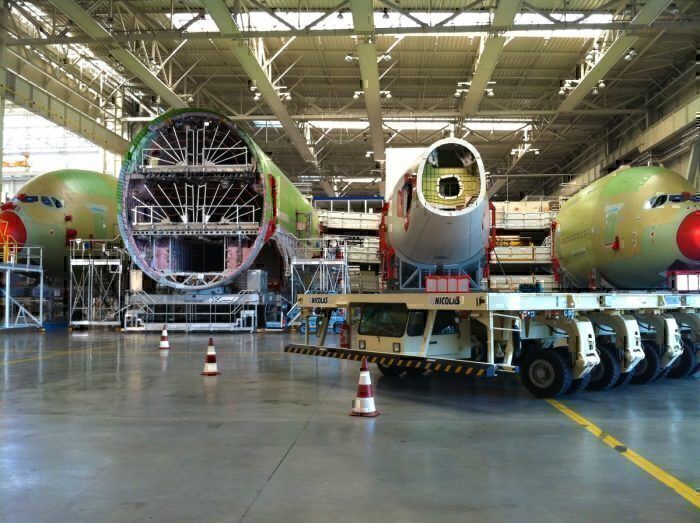Yesterday we saw Airbus release its earnings report for the second quarter and it looks like there has been a surge in earnings. Upon examination of the results it seems clear that a ramp up in deliveries of its A320 family of aircraft has been a major factor. The A320 line-up, of course, is the main rival to Boeing's now-grounded 737 MAX family of jets.
The numbers
According to Bloomberg, Airbus' adjusted profit before interest and tax increased 72% to 1.98 billion euros ($2.2 billion). This beats estimates with Airbus delivering approximately 300 of its A320 aircraft. Neo aircraft represented 234 out of the total 294 deliveries.
Below are additional key figures with regards to their successful first half of 2019, primarily with regards to their commercial aircraft (excluding military and helicopter figures). H1 2018 numbers are included for comparison:
- The manufacturer's gross commercial aircraft orders totaled 213 (H1 2018: 261 aircraft) with net orders of 88 aircraft (H1 2018: 206 aircraft).
- The order book stands at 7,276 commercial aircraft as of 30 June 2019.
- Consolidated revenues increased to € 30.9 billion (H1 2018: € 25.0 billion), mainly reflecting higher commercial aircraft deliveries and favourable foreign exchange.
- A total of 389 commercial aircraft were delivered (H1 2018: 303 aircraft), comprising 21 A220s, 294 A320 Family, 17 A330s, 53 A350s and 4 A380s.
A320neo success
In the company's official press release regarding their latest financials, Airbus Chief Executive Officer Guillaume Faury had the following remarks:
“The half-year financial performance mainly reflects the ramp-up in production of A320Family aircraft and transition to the more efficient NEO version, as well as further progress on the A350 financial performance...We continue to see good demand for our competitive product portfolio, including the new A321XLR, as shown by the strong market endorsement at June’s Le Bourget airshow. Our operational focus is mainly on the A320neo Family ramp-up. The second half of the year in terms of deliveries and in particular free cash flow continues to be challenging.”
"Strong market endorsement" of the A321XLR at the 2019 Paris Air Show include orders from:
- MEA: Four swaps from the A321neo
- Air Lease: 27 new orders
- Cebu Pacific: 10 new orders
- Saudia: 15 new orders
- IAG: 28 total, comprising 14 orders and 14 options destined for Aer Lingus and Iberia
- Indigo Partners: 50 total, comprising 32 new orders and 18 swaps
- American Airlines: 50 total, comprising 30 swaps and 20 new orders
- Qantas: 36 total, comprising 10 new orders and 26 swaps
- flynas: 10 new orders
- JetBlue: 13 swaps
Sandy Morris, an analyst for Jefferies International at the following remarks in the Bloomberg report:
“We figure Airbus could have raised guidance today, but chose not to with so many deliveries remaining in the second half,”
The Bloomberg report goes on to say that margins are increasing due to higher prices for Neo planes versus earlier A320 models. Furthermore, there has been improved financial performance on the A350 wide-body program.
A320neo success, 737 MAX failure
It's safe to assume that a large part of the A320neo-family success is due to the failure of the 737 MAX. In fact, there was only one (albeit fairly large) order during the Paris Air Show for Boeing's 737 MAX aircraft from IAG. However, this "order" comes as an "intention to purchase" and has not yet been firmed up.
Narrow-body orders may continue to be a challenge for Boeing until the FAA, EASA, and other civil aviation authorities allow the aircraft type to fly again.
Headwinds
Airbus risks being a victim of its own success. According to Bloomberg, airlines including IAG and JetBlue were complaining this month that some A320-family shipments remain behind schedule. This is particularly the case with a new long-range variant of the A321 model.
The earnings press release describes some of the challenges:
"The ramp-up in production of the Airbus Cabin Flex (ACF) version of the A321 remains challenging. Given the recent commercial success of the A321 ACF and XLR as demonstrated at Le Bourget, Airbus is studying different options to increase the share of the A321 in current A320 Family production capacity."
Options to increase production could include the conversion of floor space at a Hamburg plant. More specifically, a plant that builds the A380 model, Chief Executive Officer Guillaume Faury said on a call. In fact, A380 production is set to wind down over the next two years.
Furthermore, additional headwinds include any potential U.S. decision to impose tariffs on its products in a dispute over government subsidies. This, says Bloomberg, would weigh “significantly” on deliveries of aircraft as well as helicopters to American customers.




